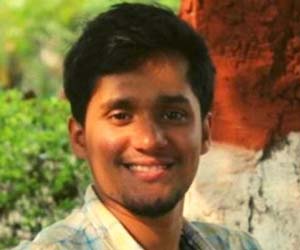On 23rd August 2023, Vivekananda International Foundation (VIF) organised a Vimarsh lecture on ‘Hindutva and Comparative Religion’ by Prof. Arvind Sharma. Prof. Sharma, formerly of the Indian Administrative Service (IAS), is the Birks Professor of Comparative Religion in the School of Religious Studies at McGill University in Montreal, Canada. He has also taught at various universities in the United States (Northeastern, Boston, Temple, Harvard), Australia (Queensland, Sydney), and India (Nalanda). He has published extensively in the field of Indian religions and comparative religion. He is the General Editor of the Encyclopedia of Indian Religions (Dordrecht: Springer, 2017). Prof. Sharma was also instrumental in adopting the Universal Declaration of Human Rights by the World’s Religions, at a global conference held in Montreal, in 2016.
This talk was the fifth among the lectures and discussions VIF had organised under the ‘Hindutva for our times’ series. Around a hundred years ago, in 1923, V.D Savarkar wrote a seminal work titled ‘Hindutva: Who is a Hindu?’ This book gave the classical formulation for the concept of Hindutva. It would be timely to explore the underlying feature of Hindutva ideology. In that direction, the fifth discussion of the series, titled “Hindutva and Comparative Religion,” examined the relevance of comparative religion as Hindutva tries to understand religions of the world.
Dr. Anirban Ganguly, Chairman and Trustee of Dr. Syama Prasad Mookerjee Research Foundation (SPMRF) and Member of BJP's National Executive Committee (NEC) also attended the event as a panelist.
In his keynote address, Prof. Sharma mentioned that the Hindutva thought leader V.D Savarkar has made the distinction between religions that were born in India and outside. Religions that were born outside India have a foreign land as their ‘Holy Land’. According to him, this factor will play a major role in the way Hindus look at India and the people of outside religions look at India. Prof. Sharma added that the issue of proselytisation is a larger issue over such matters of differences. Because despite being a foreign religion, Hindutva never seemed to have a major problem with non-proselytising religions like Judaism.
He added that a distinction should be made between the right of an individual to convert to any religion and a person’s right to ask someone to change their religion. Prof. Sharma mentioned that while the former could be categorised as voluntary external conversion, the latter is induced external conversion. These two rights are not symmetrical. Towards the end of the lecture, Prof. Sharma provided one line arguments of each of the 5 lectures on Hindutva for our times series, which began on 17th May, 2023.
In response to Prof. Sharma, Dr. Anirban Ganguly said that post-independent India has never been able to do a comparative analysis of cultures and religions. Rather, the discourse was focused on a one-sided analysis to tarnish India’s culture. Attempts to comparatively analyse things were ridiculed and discouraged. Nevertheless, he reminded that Swami Vivekananda’s was one of the earliest attempts to compare cultures and religions, and thus, his contribution to the emerging field cannot go unrecognized. Dr. Ganguly also gave examples from Indian history to show how the Indian state has always shied away from Indian culture in the name of secularism.







Post new comment